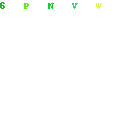
Posted on 03/10/2015 1:13:31 PM PDT by NRx
See the linked site, pages 15-17.
(Excerpt) Read more at cornellalumnimagazine-digital.com ...
For the non-college graduate. Try this eighth grade exam from 1895.
With God as my Judge that happened.I was sitting about four feet away when it transpired.
What they give for questions is only an excerpt. They do provide a link to the full exam https://archive.org/stream/questionpaper8908corn#page/n151/mode/2up
I doubt that there are 10 high school students in the whole of the U.S. who could pass it—I’d be surprised if you could dig up a 100 undergrads. Outside of graduate programs in classics and language oriented theology programs, most people would be skipping whole sections of the test: the language sections are very thorough and presuppose and ability to go from English into French, German, Greek, and Latin.
(BTW I prefer the math questions myself, would be at a complete loss at German, and am a member of the Arts and Science class of ‘91)
Very often the reason why half of them get something wrong is the students don’t care enough to pay attention or to study, or it was a detail that required a fair bit of attention and study. If a good fraction get it right, it helps to introduce gradation into grading.
Ed. Psych. class in 1972 had the deal that if half the class missed the answer then it was thrown out because it was too difficult. Good way for the instructor to get by with not teaching that information or it was taught in such a way half of the class didn’t remember it.
Many High Schoolers spend 3-4 hours a day practicing sports but only 45-55 minutes a day in math or science, etc. Then we wonder why they can’t spell cat? Then we are told that they can get extra practice with homework except they don’t assign homework. Why would they not assign homework? Because they won’t do it and don’t care what the penalty is if they don’t.
I think that’s actually the 1889 exam. But it is the full exam and not an excerpt. For the record, I have a BA (cum laude) and two Masters Degrees, and if I had been given that test, I think I would have just taken one look and gone right back into the Navy.
It isn’t the full exam—even the article notes that these are only “some questions from”; the link that I posted from the article provides access to all the exams from 1889-1908. I have only gone through three of the early ones, but all of them are brutal. I have had enough Latin and Greek to limp around at points, but I would have to cherry pick questions to do anything other than make a total fool of myself.
Take a look at the full exam. https://archive.org/stream/questionpaper8908corn#page/n151/mode/2up
Homeschoolers do a fairly good job, and I have taught many of them, but don’t fool yourself—things have declined greatly. A very good education now days has some bright spots compared to a good education in the past, but the past education on the whole eclipses anything out of the present.
Ooops I was not very clear in my comment. When I said it was the full exam, I was referring to your link, not the one I originally posted, which is indeed an excerpt. And yes, the exams were slightly insane.
aside from the German translation, my sons would do well... i know things have declined greatly, which is why i chose classical education for my sons... the educations of Thomas Jefferson and James Monroe have been my models... my sons began Latin studies in what would be considered first grade... Greek studies in what would be considered fifth great... Euclidean geometry... logic, rhetoric... they began reading the Greeks and Romans right from the start and are very familiar with Ancient history... classical writing beginning with Fable, to Narrative, Chreia/Maxim, Refutation/Confirmation, finishing with Thesis and Law... this does not include the sciences nor the extras such as music, art, public speaking, drama, poetry...
i can tell you, not many homeschoolers take this route... i have used "Climbing Parnassus," by Tracy Lee Simmons, "How to Read Aloud," by Jim Trelease, "A Thomas Jefferson Education," by Oliver DeMille and "The Latin-Centered Curriculum," by Andrew Campbell, as inspiration and reference...
i am not fooling myself...
p.s., this is one of my favorite sites for the extras... http://www.bolchazy.com/
Thanks for the tip. I’ve taught a couple of hundred homeschool graduates, but none that have taken this route.
We homeschool, but not this rigorously.
If they are that well educated, one of the challenges will be to find a suitable undergraduate program.
Just for fun, look at the additional examination for those who want to try for a scholarship. If they can manage that, then they are ready for grad school in classics.
Ping for the days when things weren’t so evil.

Disclaimer: Opinions posted on Free Republic are those of the individual posters and do not necessarily represent the opinion of Free Republic or its management. All materials posted herein are protected by copyright law and the exemption for fair use of copyrighted works.